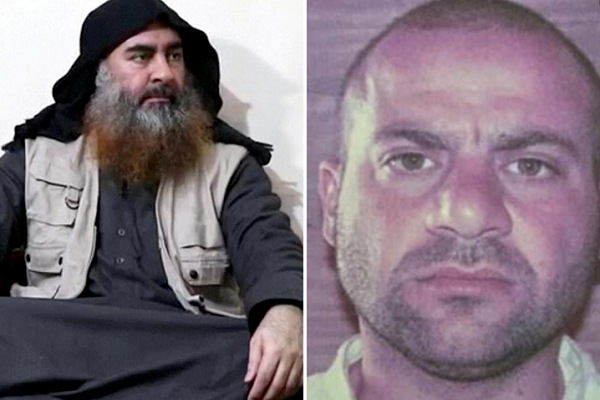Daesh Founding Member Confirmed by Spies as Group's New Ringleader

He is one of the terror group’s founding members and has led the enslavement of Iraq’s Yazidi minority and has overseen operations around the globe.
Salbi was named leader hours after the death of Abu Bakr al-Baghdadi in October. The name that the group gave for Baghdadi’s replacement at the time, Abu Ibrahim al-Hashimi al-Quraishi, was a nom de guerre not recognized by other senior leaders or intelligence agencies.
In the three months since the raid that killed Baghdadi, a fuller picture of Salbi has been pieced together by regional and western spies, placing him at the center of Daesh decision-making – and that of its forerunners – and portraying him as a hardened veteran in the same vein as Baghdadi, unflinching in his loyalty to the extremist group.
Salbi is considered to be one of the most influential ideologues among the now depleted ranks of Daesh. Born into an Iraqi Turkmen family in the town of Tal Afar, he is one of the few non-Arabs among the leadership.
He is also known by the nom de guerre Haji Abdullah, and in some circles as Abdullah Qardash – although Iraqi officials suggest the latter was a separate Isis figure who died two years ago.
Salbi, as intelligence officials now know him, rose through the ranks helped by his background as a scholar and gave religious rulings that underwrote the genocide against Yazidis and the emptying of the Nieveh Plains in northern Iraq during the height of the Isis rampage. Salbi holds a degree in sharia law from the University of Mosul. In 2004 he was detained by US forces in Camp Bucca prison in southern Iraq where he met Baghdadi. He is believed to have at least one son.
Before Baghdadi’s death in a US military raid in north-west Syria on October 27, the US state department put a $5m bounty on Salbi’s head and on two other senior members of the group. Salbi was touted as a potential replacement for the ailing Baghdadi in August but confirmation of his appointment took several months to secure.
Since then he is understood to have been trying to consolidate the new Daesh leadership, nearly all of whom apart from Salbi himself are drawn from a new generation who were too young to play roles in Daesh’s founding battles against US forces from 2004 or in the Iraqi civil war that followed.
Daesh is yet to regain anything like the juggernaut-like momentum that led to it threatening the regional order after Baghdadi proclaimed himself a caliph in mid-2014. However, it has shown signs of regrouping since it lost its last foothold of land in the deserts of eastern Syria in March last year.
Kurdish forces in northern Iraq have warned since last summer of an increase in attacks in the center and north of the country. Daesh claimed to have carried out 106 attacks between December 20 and 26 to avenge the deaths of Baghdadi and the Daesh propaganda chief, Abu Hassan al-Muhajir, on the same day.
A senior Iraqi Kurdish official said: “We’ve seen significant uptick in Isis attacks from mid last year, with the center of gravity having now moved further south. We’re now tracking on average 60 attacks a month through assassinations, roadside bombs and assaults on Iraqi security forces.
“Their rural networks remain very much intact; after all, Isis members in Iraq still receive monthly salaries and training in remote mountainous areas. That network allows the organization to endure, even when militarily defeated.”
The hunt for Salbi has extended to Turkey where his brother, Adel Salbi, is a representative in a political party called the Turkmen Iraqi Front. The new Daesh leader is thought to have maintained connections with his brother until he was named as leader.
Intelligence officials have little insight into his whereabouts but suggest he is unlikely to have followed Baghdadi to Idlib province and would have preferred to stay in a small band of towns to the west of Mosul.
Source: The Guardian



